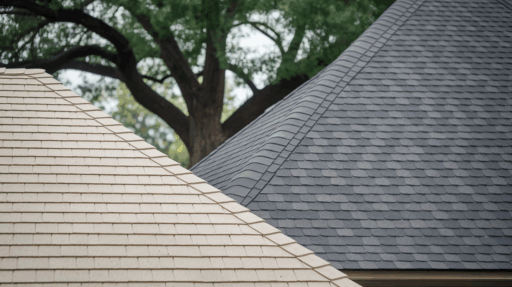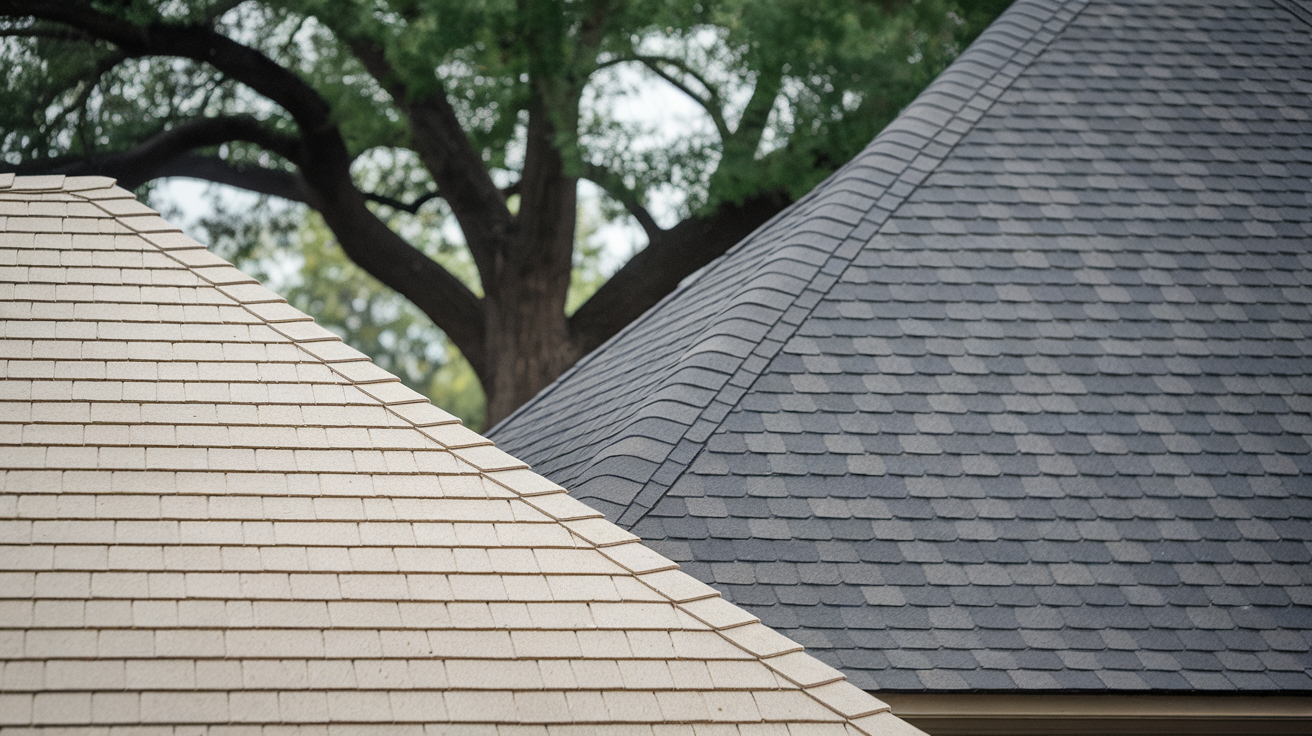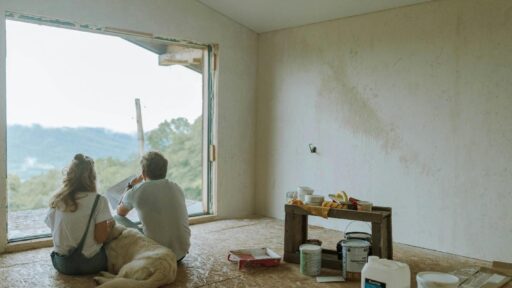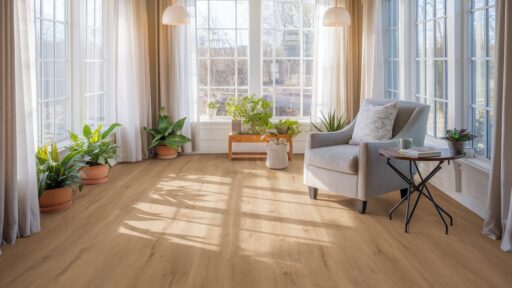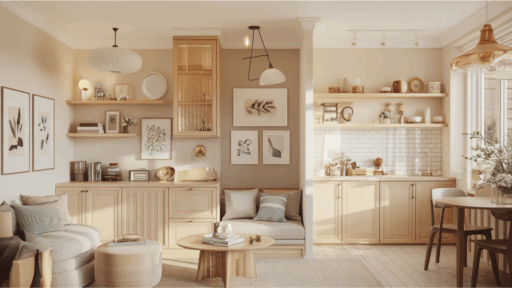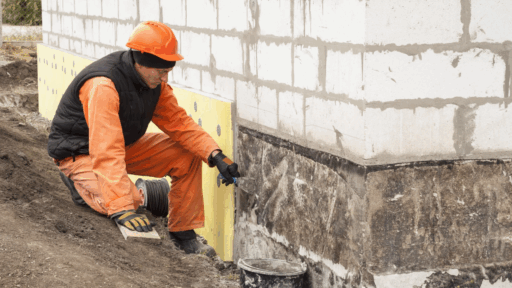If you’re choosing new shingles for your roof, you’ll likely come across two main types: 3-tab and architectural shingles.
Both are made from asphalt, but they look different and perform differently. I used to think all shingles were the same, but there’s actually a big difference in quality and lifespan.
3-tab shingles are flat and uniform, giving a simple, clean look. They’re also more affordable, which is great if you’re on a budget.
On the other hand, architectural shingles are thicker and have a more textured, layered appearance. They tend to last longer and can handle tough weather better.
I learned that picking the right shingle isn’t just about looks – it’s also about how long you want your roof to last and how much maintenance you’re okay with. In this post, I’ll break down the pros and cons of each type.
Understanding the Basics of 3 Tab and Architectural Shingles
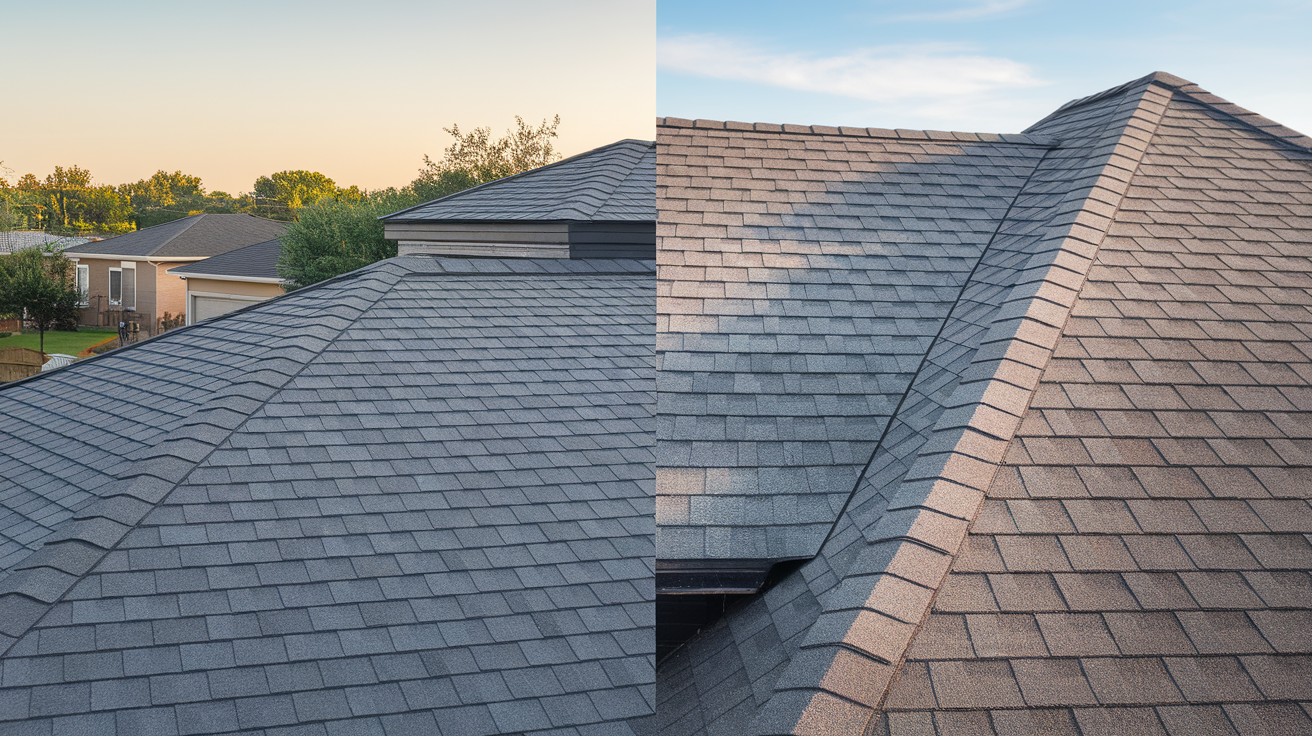
You’ve got two choices on your plate: 3-tab shingles and architectural shingles. You’ve probably heard both terms thrown around. But what do they actually mean?
I’ll be real with you, I used to think all shingles were the same. But 3-tab shingles are pretty specific. They’re flat, thin, and lightweight. Each shingle features three cut-out tabs, giving it a regular, even appearance.
You’ll mostly see them on starter homes, rental properties, or places where budget matters more than looks or lifespan. They do the job, just not for as long.
Architectural shingles are thicker and layered. Instead of one flat piece, they have depth and texture. That extra layer isn’t just for looks; it gives them more strength.
You’ll find these on homes where people want better curb appeal and longer-lasting protection. I chose them for my own house. They just felt right.
Two types and two different vibes. And now you know the difference.
3 Tab Shingles vs Architectural Shingles: Key Features
When I started comparing roofing options, I quickly noticed some big differences between 3-tab and architectural shingles. Here’s what I found.
1. Material Composition

What are these shingles actually made of? That’s where the real differences start to show.
3-Tab Shingles
These are basic but reliable. They’re made from a single layer of asphalt with a fiberglass base. That’s it and simple stuff.
This design makes them lightweight and easy to install. They also have a uniform, flat shape, which gives roofs a tidy look, but not much depth.
If you’ve seen a roof that looks smooth and even across the top, chances are it had 3-tab shingles.
Architectural Shingles
These are a step up literally. They’re built with two or more layers of material, usually asphalt and fiberglass, pressed together.
That extra thickness gives them a heavier feel and a more textured, 3D look. They don’t just sit on the roof—they stand out. And with that weight comes more strength.
| Feature | 3-Tab Shingles | Architectural Shingles |
|---|---|---|
| Layers | Single | Multi-layered |
| Weight | Lightweight | Heavier |
| Look | Flat, uniform | Dimensional, textured |
| Material Base | Asphalt + fiberglass | Asphalt + thicker fiberglass |
| Feel | Basic, smooth | Bold, layered |
You don’t need a roofing degree to see the difference. One is simple, and the other is stronger and a bit more stylish. It just depends on what you’re going for.
2. Durability and Lifespan
Let’s talk about how long these shingles really last because looks don’t mean much if you’re up on the roof again in 10 years.
3-Tab Shingles
These are the bare minimum requirements for a roofing life. You’ll get about 15 to 20 years out of them. Perhaps even more if the weather’s favorable and you stay on top of maintenance.
But storms? High winds? These shingles don’t hold up as well. They’re more likely to lift, crack, or wear down in tough weather. They work fine if you live in a mild climate or need something quick and affordable.
Architectural Shingles
These shingles can last 25 to 30 years, and in some cases, even longer. That extra thickness? It’s not just for looks. It adds strength against wind, rain, and heat.
They’re great if you live somewhere with strong storms, hot summers, or heavy snow.
| Feature | 3-Tab Shingles | Architectural Shingles |
|---|---|---|
| Lifespan | 15–20 years | 25–30+ years |
| Wind Resistance | Up to 60 mph | Up to 130 mph |
| Weather Durability | Fair in mild climates | Strong in harsh conditions |
| Best for | Budget builds, short-term | Long-term homes, storm zones |
If you’re in a calm area with no extreme weather, 3-tab might work for you. But if you’re like me and live where storms sneak up on you? I’d go architectural, but you’ll thank yourself later. Peace of mind lasts longer than the savings.
3. Cost Analysis
Here’s the simple breakdown:
- 3-tab shinglestypically cost between $1 and $2 per square foot.
- Architectural shingles cost more, ranging from $4 to $8 per square foot.
So, if you’re watching your budget closely, I understand. Those 3-tab prices are tempting. But let’s keep going.
Long-Term Value
- 3-tab shingles: Although they may be cheaper initially, they often require more repairs over time. They wear out more quickly, especially in rough weather. When is it time to sell your home? They don’t add much value.
- Architectural shingles: It costs more upfront, but it’s worth it. However, they last longer and are more resilient against damage. That means fewer repairs and less stress for you in the long run. They can also enhance your home’s curb appeal and increase its resale value.
Budgeting Tips
If you’re staying in the home long-term, I’d seriously consider investing in architectural shingles. Think of it like buying better tires for your car.
You drive safer and go longer between replacements. If you’re fixing up a rental or planning to sell soon? 3-tab shingles might be more cost-effective for your budget.
Spend smart, not just cheap. Figure out what matters more to you: lower cost now or fewer headaches later.
| Feature | 3-Tab Shingles | Architectural Shingles |
|---|---|---|
| Price per Sq. Ft. | $1 – $2 | $4 – $8 |
| Installation Cost | Lower | Higher |
| Repair Frequency | More frequent | Less frequent |
| Lifespan | 15–20 years | 25–30+ years |
| Resale Value Boost | Minimal | Moderate to high |
| Best for | Budget, short-term use | Long-term, higher value homes |
4. Aesthetic Appeal
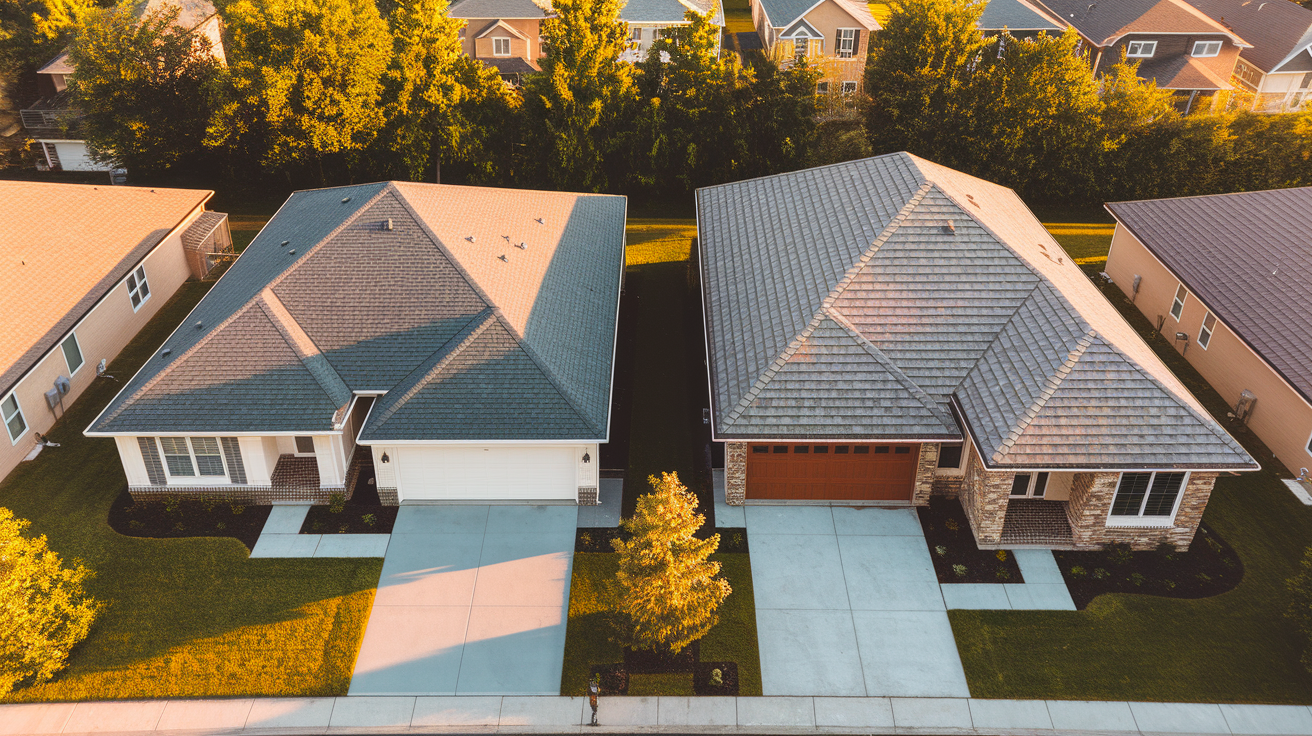
Let’s be honest in this looks matter. Especially when it comes to your roof, it’s one of the first things people see.
3-Tab Shingles
If you’re going for simple and clean, these get the job done. They have a flat, even appearance that gives your roof a uniform look. Nothing flashy. Nothing bold. Just neat.
But here’s the thing: they don’t offer much in the way of style choices. You’ll find a few basic colors, but that’s about it. So if you’re hoping to match a unique home design? You might feel limited.
Architectural Shingles
These shingles have a dimensional, layered look. From the street, they add depth and character. Some even mimic the appearance of wood shakes or slate.
And the color options? You’ve got plenty. Earth tones, cool grays, bold charcoals, you name it. If you want your roof to stand out a little more (in a good way), architectural shingles give you the tools.
Flat and basic or textured and bold, it depends on the look you want. I’ve seen both in different homes, and each has its place. Just ask yourself: do I want it to blend in, or pop just a bit?
5. Installation and Maintenance
Let’s talk about what happens after you pick your shingles, because choosing them is just the start.
Installation Complexity
- 3-tab shingles: They are quicker to install. They’re light, uniform, and easy to line up. If you’ve got a small roof or you’re in a hurry, this matters. I’ve even seen handy homeowners do it themselves, though I’m not saying you should. But it’s doable.
- Architectural shingles: They require more time. They’re heavier. The layered design needs a bit more skill to get it right. You don’t want the roof to look lopsided. If you hire a pro, this part won’t bother you.
Maintenance Requirements
Regardless of the shingles you choose, your roof requires regular inspections. At least once a year. And after a bad storm.
- 3-tab shingles: They are more prone to curling, cracking, or blowing off. That’s just how they’re built. Keep an eye on them.
- Architectural shingles: They are tougher, so they don’t need as much fuss. But they’re not bulletproof. Debris, moss, or ice dams can still cause trouble.
Professional Hiring
If you’re replacing a few shingles, you might manage it yourself if you’re careful and know your way around a ladder. But for a full install, please call a contractor. They’ll make sure it’s done right the first time. No leaks and no lifting.
Simpler doesn’t always mean better. Just make sure you know what you’re getting into before climbing up there with a bundle of shingles and a nail gun.
Pros and Cons of 3 Tab vs Architectural Shingles
Still undecided between 3-tab and architectural shingles? I get it. There’s a lot to consider, and every roof has its own unique needs.
| Type of Shingle | Pros | Cons |
|---|---|---|
| 3-Tab Shingles | – Low cost – Lightweight – Easier to install | – Shorter lifespan (15–20 years) – Less durable – Limited styles |
| Architectural Shingles | – Longer lifespan (25–30+ years) – More durable – Stylish appearance | – Higher cost – Heavier – Requires skilled installation |
This table provides a quick visual summary of what each option offers and the associated trade-offs. Use it to compare at a glance before making your final call.
Conclusion
Choosing between 3-tab shingles and architectural shingles comes down to what matters most to you.
3-tab shingles are a solid choice if you’re looking for something affordable, lightweight, and easy to install. But they come with a shorter lifespan and fewer style options.
Architectural shingles cost more upfront, but they offer longer durability, better weather resistance, and a richer look that can boost your home’s value.
Consider your budget, the duration of your stay in your home, and the local weather conditions.
If you’re unsure, it’s always a good idea to talk with a trusted roofing professional. They can help you choose what best suits your home and your budget. The right shingle isn’t just about price, it’s about peace of mind for the years ahead.

